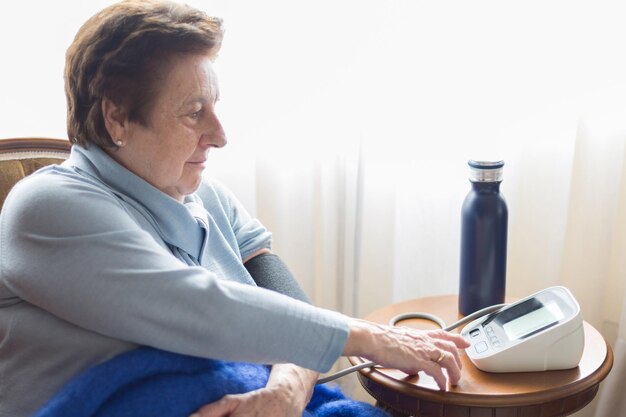Your Guide to When Is Hypertension An Emergency
What You Get:
Free Guide
Free, helpful information about HyperTension FAQ and related When Is Hypertension An Emergency topics.
Helpful Information
Get clear and easy-to-understand details about When Is Hypertension An Emergency topics and resources.
Personalized Offers
Answer a few optional questions to receive offers or information related to HyperTension FAQ. The survey is optional and not required to access your free guide.
Recognizing a Hypertension Emergency: What You Need to Know
High blood pressure, or hypertension, is a chronic condition that affects millions worldwide. But when does it escalate from a manageable issue to an urgent medical crisis? Knowing when hypertension becomes an emergency is crucial for preventing serious health complications.
What Defines a Hypertensive Emergency?
A hypertensive emergency occurs when blood pressure spikes to dangerously high levels—typically defined as a reading above 180/120 mmHg—accompanied by symptoms indicating organ damage. This situation demands immediate medical attention to prevent life-threatening outcomes like stroke, heart attack, or acute kidney failure.
Symptoms to Watch For
Be alert for the following symptoms that indicate a hypertensive emergency:
- Severe headache
- Chest pain
- Shortness of breath
- Vision problems
- Severe anxiety
- Confusion or difficulty speaking
- Nausea or vomiting
If you or someone else experiences these symptoms, it's crucial to call 911 or visit the nearest emergency room without delay.
Managing Hypertension: Beyond Emergencies
While it's essential to know when hypertension is an emergency, managing chronic high blood pressure is equally important to prevent emergencies in the first place. Keeping blood pressure within healthy limits often involves:
- Regular monitoring of blood pressure at home.
- Adopting a healthy lifestyle, including a balanced diet and regular exercise.
- Limiting alcohol and avoiding tobacco.
- Taking prescribed medications as directed by a healthcare professional.
Financial Considerations in Healthcare
Managing hypertension and dealing with emergencies can be costly. Fortunately, there are several government and non-government financial assistance programs to help manage these costs:
- Medicare and Medicaid: These programs offer affordable healthcare options for eligible individuals.
- Nonprofit organizations often provide assistance to those in need of help with medical bills.
- Prescription discount programs can reduce the cost of medications necessary for managing hypertension.
Educational and Financial Resources
Education and financial well-being also play significant roles in managing health. Understanding options like grants for continuing education or debt relief can empower individuals, offering broader support beyond healthcare.
Below is a list of resources that might be beneficial:
📚 Educational Grants: Look into programs like the Pell Grant for adults returning to school, which can lead to better job opportunities and income stability.
💳 Credit Counseling Services: These services provide valuable advice on managing debt and maintaining a healthy credit score.
🏥 Healthcare Financial Assistance: Contact local hospitals for charity care programs designed to assist those with low income or without insurance coverage.
💸 Debt Relief Options: Organizations like the National Foundation for Credit Counseling (NFCC) can help restructure payments, making debt more manageable.
Understanding and addressing hypertension—from recognizing emergencies to applying for financial aid—ensures that both health and financial stability are maintained. Taking proactive steps in managing health conditions and finances can lead to a better quality of life and peace of mind.
What You Get:
Free HyperTension FAQ Guide
Free, helpful information about When Is Hypertension An Emergency and related resources.

Helpful Information
Get clear, easy-to-understand details about When Is Hypertension An Emergency topics.

Optional Personalized Offers
Answer a few optional questions to see offers or information related to HyperTension FAQ. Participation is not required to get your free guide.


Discover More
- a 66 Year Old Female With a History Of Hypertension
- Are Eggs Bad For Hypertension
- Are Eggs Good For Hypertension
- Are Endocrine Disorders Causing Hypertension Rare
- Can Adderall Cause Hypertension
- Can Alcohol Cause Hypertension
- Can Allergies Cause Hypertension
- Can Anemci People Get Hypertension
- Can Anemia Cause Hypertension
- Can Antibiotics Cause Hypertension
